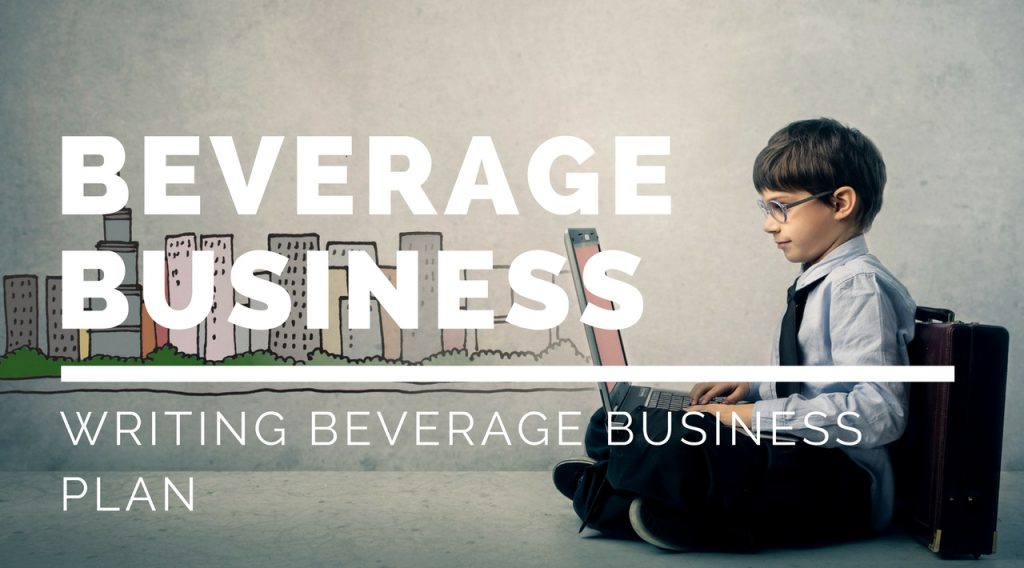So you have read my latest blog post Why You Shouldn’t Start a Beverage Company ….and you are still keen to do it? Ok, but never complain that I didn’t warn you.
The most important step before making any serious decisions is to prepare a beverage company business plan. The business plan preparation will help you to have a better picture where you are going, what you want to reach and how you will reach it.
Moreover, beverage business plan is a document which you will be introducing to your potential investors, so it is important to do your homework and do it in a right manner. You have to show that you understand the topic and have a clear strategy to reach your goals.
Let’s start with the structure of your business plan. There is no ideal structure, however, in the majority of cases it includes these elements:
- Executive Summary
- Business Overview
- Business History
- Vision and/or Mission
- Objectives
- Ownership Structure
- People Involved
- Industry Overview
- Marketing Strategy
- Operational Plan
- Financial Planing
Contact a Beverage Specialist Today
Executive Summary
Executive summary shouldn’t be longer than one page. It’s a short introduction of your business idea (product offering, target market, unique selling proposition), business concept, key objectives of your business plan, ownership structure and management team.
Actually, Executive Summary should be written last, after you’ve written the rest of your beverage business plan. So don’t hurry with it.
Business Overview
Introduce your business history, if it’s a startup then talk more about your team and your experience. Your business vision and mission. Be really clear about that, it’s very important to understand where you want to go. Especially if you are planning to introduce your business plan to the investor. They have to understand your business objectives and goals. Then it will be easier for them to build a full picture.
Industry Overview
The industry overview is your opportunity to demonstrate industry know-how. You need to introduce the current market situation, size and growth rate of your industry. You need to identify where is actually the opportunity in your market and discuss it. Which market will you be targeting and why? Why do you believe there is an opportunity?
Marketing Strategy
Here you describe your target market segments, your competition, your differentiation (USP) and your strategy. Usually, our list includes these topics
- Target consumer analysis and Consumer profile. Who is buying your product?
- Strategic Positioning, USP. Why your product should be bought? Why it‘s unique?
- Marketing Goals & Objectives, Expected results
- Marketing Mix
- Trade Marketing
- Promotional Strategic & Operational plan
- Communication planning
- Evaluation / Measurement
This is the most important part of your beverage business plan. You have to show that you know who is your consumer and you know how you will be selling your product to him.
Operational Plan
You need to provide a detailed plan which will show how your business will be managed on daily basis. It should include your human resource plan, business location and facilities, production plan etc.
- Human Resource Plan. What team members you will require? What expertise do you need? Who will do what?
- Business Location and Facilities. Where do you plan to produce your product? Where you administration is located?
- Supply and Inventory Management. Who will your suppliers be? Are you buying raw material separately and delivering to the factory, or are you buying a final product from a manufacturer? Where will you store your product? What are the payment terms?
- Production and Distribution. Do you plan to outsource manufacturing, build your own facilities or buy a beverage manufacturer? What type of machinery do you need? What beverage manufacturing technology are you planning to use?
Financial Planning
Some believe it’s the most important section of your business plan, especially investors. So you shouldn’t look carelessly to it.
You need to show at least three years worth of financial statements which will include income statements, balance sheets, monthly/yearly cash flow statements.
To sum up, it’s not a short or easy process. Sometimes companies are hiring professionals to do it for them. But it might be even more useful if you can do it yourself.
Good luck!



